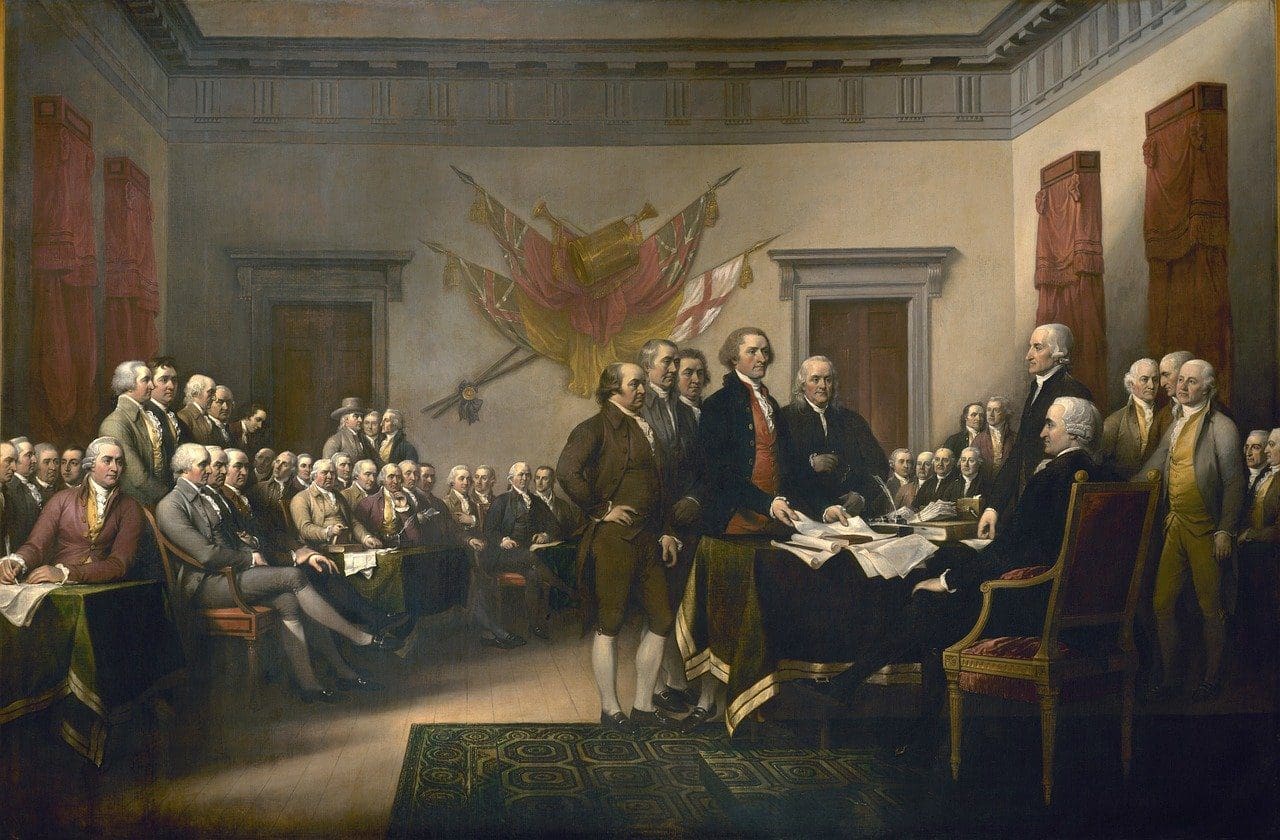By all outward appearances, there was no difference between July 3, 1776, and July 5. The American colonies were no more free and no more independent. Practically speaking, the governing structures were not different.
This might seem odd, but I appreciate that as a nation, our republic doesn’t celebrate October 19, 1781—the date the war for American independence ended. There are no parades commemorating September 3, 1783, when the Treaty of Paris formally concluded the war.
Instead, we celebrate July 4th. That is the day in 1776 when our Founding Fathers firmly, finally, and officially committed themselves—their lives, their fortunes, their sacred honor—to the cause of American liberty.
Now, make no mistake: many of them had done so personally and individually weeks, months, even years earlier. They already had an army, and blood had already been shed.
Yet, the Fourth of July is celebrated because that is when they formally, out loud, with one voice, declared their defiance and announced their independence. They acknowledged to each other and a candid world that they were dissolving the political ties with England in order to form a self-governing republic.
What we celebrate is not the victory they achieved, but their commitment to the fight when it seemed most improbable, if not outright impossible. It is a recognition that, in the most important ways, by choosing to declare their independence, they had already achieved it.
Nearly all of our Founding Fathers were men of faith; they understood that the struggle upon which they were to engage may or may not be successful in the eyes of the world. That didn’t matter; they achieved freedom in their choice, declared on the Fourth of July, and the fight ahead was merely the necessary consequence.
On Independence Day, we celebrate our Founding Fathers’ commitment to life, liberty, and the pursuit of happiness. On Independence Day, we celebrate their willingness to exercise their convictions for themselves and on behalf of the generations to follow.
As it was in 1776, so it is today. The real difference between July 3rd and July 5th is what we commit ourselves to on the Fourth of July.
No ads. No paywalls. No government grants. No corporate masters.
Just real news for real Texans.
Support Texas Scorecard to keep it that way!





